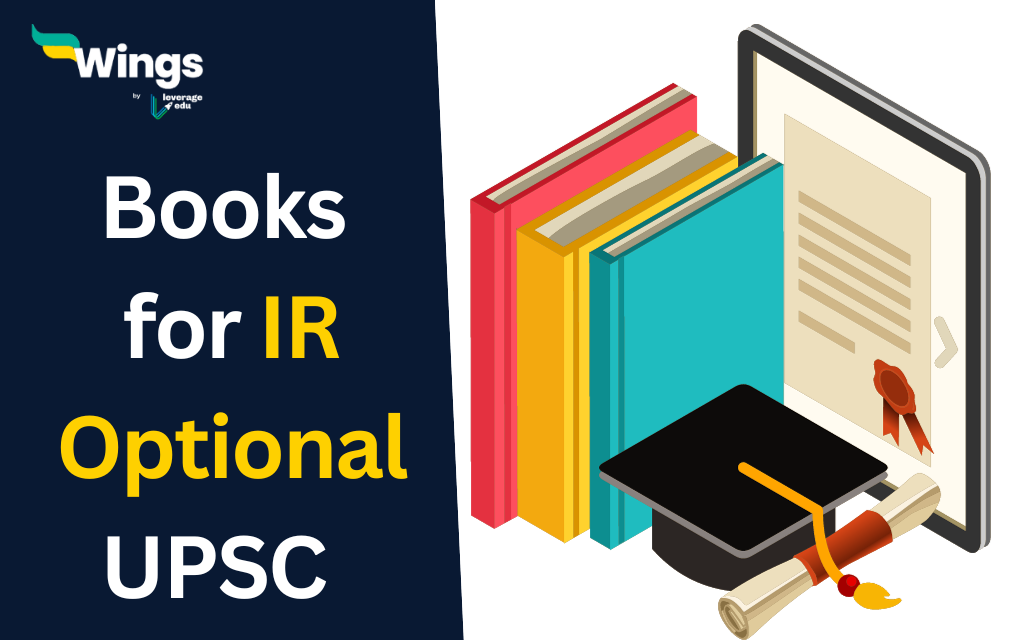Hey, guys! Mr. Owl 🦉 is here. I see that you want to know about the ‘Best Books for International Relations UPSC Optional’. Hootfully, I’ll be of help to you! Since we owls are very wise. If you scroll further down this blog, you’ll see all the information you will need!
The UPSC (Union Public Service Commission) examination is one of the most prestigious and competitive exams in India. UPSC offers International Relations (IR) as an optional subject for the UPSC mains examination. Scoring well in the IR optional can significantly boost your overall UPSC ranking.
Contents
Best Book for International Relations for UPSC (Optional) ☝️📚
Following are some books that can help you prepare effectively for International Relations (Optional) Subject-
| Book Name | Author Name | Link to Buy |
| “An Introduction to International Relations” | Richard Devetak | Click Here to Buy |
| “Theory of International Politics” | Kenneth Waltz | Click Here to Buy |
| “World Order” | Henry Kissinger | Click Here to Buy |
| “Killing in War” | Jeff McMahan | Click Here to Buy |
What are the Pros ✅ and Cons ❎ of Choosing International Relations as an Optional Subject for UPSC Exam?
Following are some pros and cons of having International Relations as an optional subject for UPSC subject:
✅ Pros
- Broadens knowledge base and critical thinking skills
- Enhances communication skills and global awareness
- Prepares for a career in diplomacy or international affairs
❎ Cons
- Requires a strong foundation in history and political science
- It can be difficult to find good resources and may not be as relevant to other UPSC subjects
- May not be as popular as other optional subjects, making it difficult to find study partners and get help
- The global political economy
- International trade
- International finance
- Development and underdevelopment
- Global governance
Also Read: How to Prepare for UPSC 2024 at Home?
Tips to Prepare for IR Optional for UPSC ☝️
Keep the following tips in mind while prepping yourself for UPSC examinations-
- Familiarize yourself with the UPSC IR optional syllabus to know what to focus on.
- Read not only the recommended books but also international newspapers, journals, and think tank reports to stay updated on global events.
- Practice answering previous years’ questions to develop the skill of concise and effective writing.
- Use mind maps and diagrams to illustrate complex concepts in your answers.
- Regular revision is key to retaining information. Analyze your strengths and weaknesses.
Must Read: UPSC Book List
IR Optional Syllabus for UPSC 🗺️
Before getting into Best Book(s) for International Relations for UPSC (Optional) let’s catch a quick glimpse of the in-depth syllabus of IR Optional for UPSC:
Paper I
- Introduction to International Relations
- Nature and scope of International Relations
- Evolution of the modern state system
- Key concepts in International relations: national interest, power, balance of power, deterrence, collective security, and globalisation
- Approaches to the study of International Relations: Realism, liberalism, constructivism, Marxism, and Feminism
- Theories of International Relations
- Realism
- Liberalism
- Constructivism
- Marxism
- Feminism
- History of International Relations
- The rise of the modern state system
- The European state system
- The two World Wars
- The Cold War
- Post-Cold War world
- International Political Economy
- Foreign Policies of Major Powers
- United States
- China
- Russia
- India
- European Union
- India’s Foreign Policy
- India’s foreign policy since independence
- India’s relations with major powers
- India’s role in regional and global affairs
- India’s security concerns
Paper II
- International Organisations
- United Nations
- World Trade Organisation
- International Monetary Fund
- World Bank
- Regional organisations (e.g., ASEAN, EU, SAARC)
- International Law
- Sources of international law
- The law of treaties
- The law of the sea
- Human rights law
- International humanitarian law
- International Security
- Traditional security
- Non-traditional security
- Arms control and disarmament
- Terrorism
- Nuclear proliferation
- International Development
- Concepts of development
- Theories of development
- Development strategies
- Millennium Development Goals
- Sustainable Development Goals
- Comparative Politics
- Forms of government
- Political parties
- Interest groups
- Electoral systems
- Democratisation
- Area Studies
- South Asia
- East Asia
- Southeast Asia
- Central Asia
- West Asia
- Africa
- Latin America
- Europe
- North America
“Kiddos, I’ve answered all your queries with the utmost precision that I was capable of. Now, I’ll be taking my leave, but if you think I might have missed something, do check out the FAQ section or drop a comment. I always respond!
FAQs
The IR optional can significantly impact your UPSC ranking, as it provides an opportunity to score well and gain an edge in the examination.
Yes, many successful candidates have self-prepared for IR optional. A strong foundation in the subject and consistent practice are crucial.
While the recommended books are essential, supplementing your study with diverse reading materials will provide a more comprehensive understanding of international relations.
RELATED POSTS
This was all about the “Best Book for International Relations for UPSC (Optional)”. For more such informative blogs, check out our UPSC Exams Section, or you can learn more about us by visiting our Indian exams page.


 One app for all your study abroad needs
One app for all your study abroad needs












 60,000+ students trusted us with their dreams. Take the first step today!
60,000+ students trusted us with their dreams. Take the first step today!